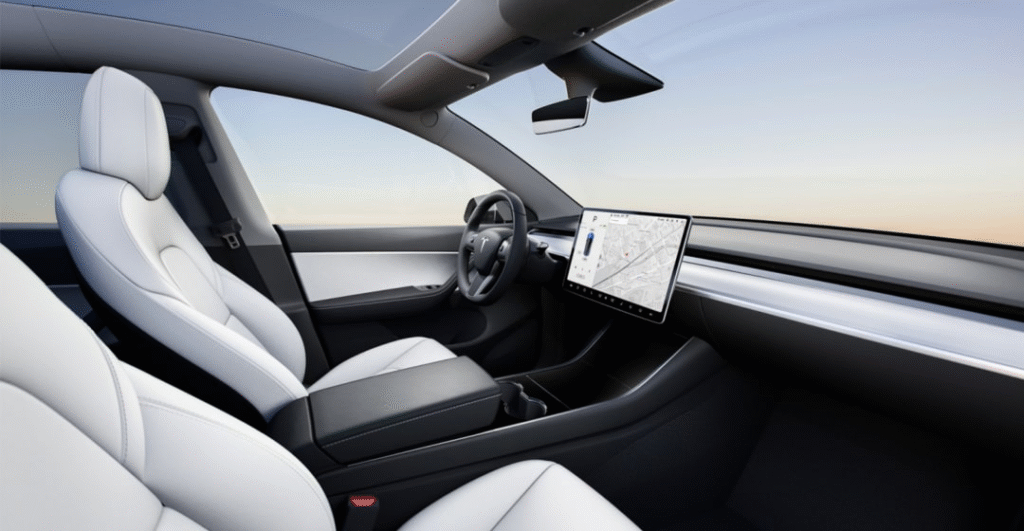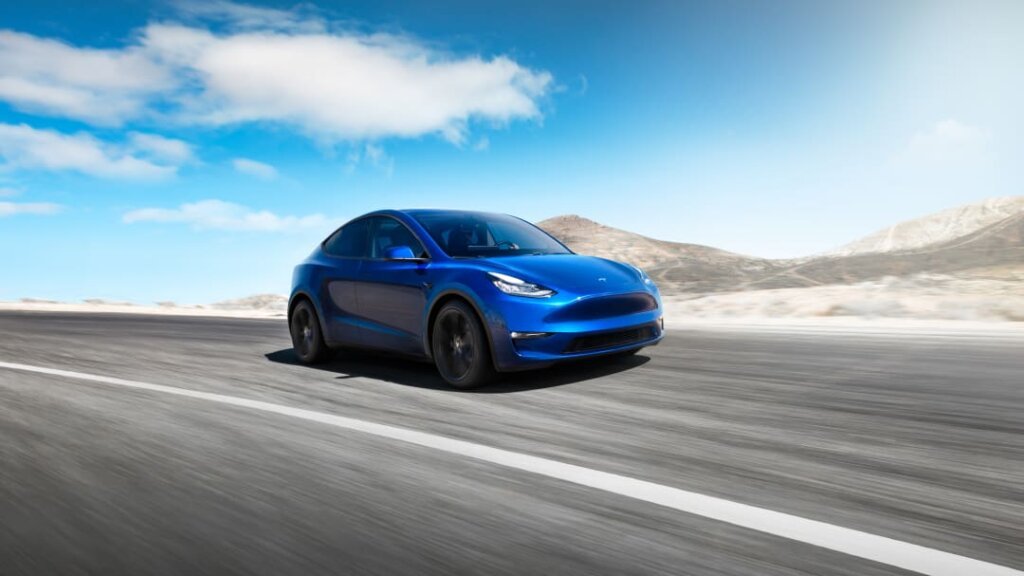Tesla Claims “No Duty to Warn” of Defects in Texas Court Amidst Burning Model Y
Austin, TX – In a highly controversial move, Tesla is asking a Texas court to dismiss a lawsuit brought by a customer who alleges defective door handles trapped her in a burning Model Y. The automaker’s defense includes the bold claim that, under Texas law, it has “no post-sale duty to warn of, or to recall, an allegedly defective product,” a stance that could have significant implications for consumer safety and manufacturer responsibility.

Customer Claims Defective Door Handles Trapped Her in Burning Car
The lawsuit stems from a fiery crash on December 9, 2023, involving a 2023 Tesla Model Y. Plaintiff Susmita Maddi was a passenger when her husband, Venkateswara Pasumarti, experienced a medical emergency and crashed into a utility pole, causing the car to ignite.
Maddi suffered severe burns and other injuries. Her lawsuit alleges she became trapped in the Model Y because of defective door handles, claiming the front-passenger door could not be opened from the outside by onlookers. The suit further asserts that these defects were present at the time of manufacture and that Tesla failed to provide adequate warning. Tesla’s defense largely centers on disputing this last point.
Tesla’s “No Post-Sale Duty To Warn” Argument
Filed in the Travis County District Court in Austin, Texas, Tesla’s legal team has moved to dismiss the case on several grounds:
- Binding Arbitration Agreement: The automaker claims the customer signed an arbitration agreement, which mandates disputes be resolved outside of court.
- Jurisdiction: Tesla argues the crash occurred in Virginia, not Texas, making a Texas state court an improper venue.
- No Post-Sale Duty to Warn: Most controversially, Tesla’s lawyers cited Texas litigation precedent, stating: “Texas courts have specifically held there is no post-sale duty to warn of, or to recall, an allegedly defective product.”
Tesla further argues that the 2023 Model Y complied with all federal and state regulations at the time of its manufacture and sale, thereby fulfilling its responsibilities. While federal regulations do require automakers to address defects through recalls (including customer notification and free repairs), Tesla’s argument appears to challenge the plaintiff’s ability to bring this specific type of suit in a Texas state court.

Door Handle Redesign on the Horizon?
Despite Tesla’s lawyers stating the automaker “denies each and every material allegation” by the plaintiff (including the claim of defective door handles), this is not the first time the company’s unique door design has come under scrutiny. The National Highway Traffic Safety Administration (NHTSA) recently launched a preliminary probe into 174,000 Model Y EVs following multiple reports of defective door handles trapping occupants.
Electronically-actuated flush door handles have been a signature Tesla design feature since the launch of the Model S, a design subsequently copied by other automakers. However, increasing legal pressure, coupled with reported plans by Chinese regulators to ban flush door handles and mandate mechanical backups, could force a significant redesign. Tesla design boss Franz von Holzhausen hinted at such a change in a recent Bloomberg podcast appearance, suggesting that while iconic, the design may need to evolve for safety and regulatory compliance.
Also Read – Bentley Teases New Limited-Edition Model, Reviving Iconic Name 100 Years On




Pingback: Shaq Restores Kobe Bryant's First Car: A 1996 Toyota Land Cruiser Tribute - Mechhelp